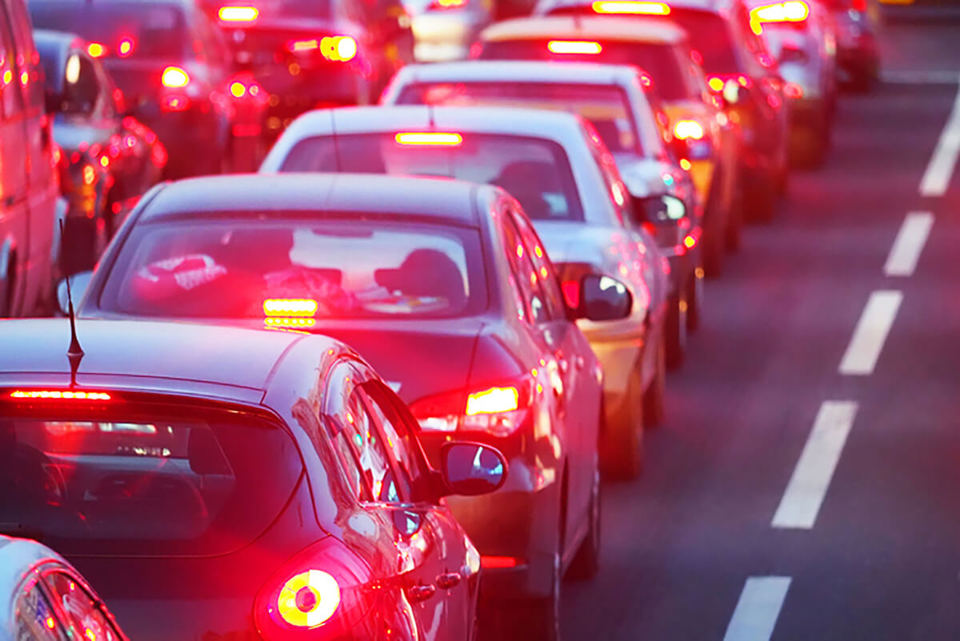Inrix, a provider of real-time traffic information and connected driving services, has released its summer traffic predictions in its Traffic Congestion Report.
Londoners will face increased traffic congestion of 33% and core routes will slow to just 12mph in late July and early August.
The first three days of the event pose the greatest risk of traffic troubles. The Olympic opening ceremony on Friday, July 27, clashes with one of the busiest holiday getaway weekends of the summer when traffic levels are already around 30% above average.
This event is followed in quick succession by the Men’s Road Cycling Race, which will close thousands of roads throughout southwest London and Surrey. A trial event for the race in August 2011 resulted in traffic chaos, when journeys of just a few miles took several hours and some drivers were forced to abandon their cars, says Inrix.
Inrix lead scientist and traffic analyst Greg Hallsworth explained why the weekend of July 27, 28 and 29 will be so challenging. “Traditionally this is one of the busiest holiday getaway weekends of the year, combine this with the Olympic opening ceremony and the Men’s road cycling race and we could have the perfect traffic storm,” he said.
“Nearly 100,000 ticket-holders are expected at the opening ceremony, with tens of thousands of visitors anticipated at the live sites at Hyde Park and Victoria Park. Couple this with the thousands of roads closed for the Men’s Road Cycling event and the result is huge stress on the UK’s road networks.”
The Inrix Traffic Congestion Report predicts that journeys with an average travel time of one hour will take at least 12 additional minutes throughout Greater London for the duration of the Games.
Journeys through routes identified as Games hotspots such as Vauxhall Bridge and the Blackwall Tunnel will take at least 15 minutes longer and people travelling on the Core Games Network should plan for at least 20 minutes more for their journey.
Based on its free-flow to congestion model, Inrix predicts that in early August the start time for daily congested periods will move forward by as much as 90 minutes, with morning peak traffic hitting at 5.30am from 7am and evening peak traffic hitting as early as 3.30pm, rather than 5pm.
However, evening traffic congestion may ease by 6pm rather than 7.30pm as people head to meeting places to watch events on TV.
Combined with rush hour traffic, Londoners should also anticipate increased traffic around lunchtime as venues clear and refill between sessions - adding an anticipated nine minutes to standard lunchtime travel times.
To help minimise Central London traffic, it is hoped that 80% of visitors to the main Games park will arrive by public transport, using park and ride schemes that have capacity for 18,000 vehicles in Essex and 9,000 in Ebbsfleet.
However, with major shopping centre Lakeside, claiming half a million shoppers weekly, next to the Essex site, and both sites adjacent to the M25, one of the UK’s most congested routes, traffic trouble will be near impossible to avert.
This congestion risk is compounded by the fact that entrance into the park and ride sites is ticket-only - any people with misplaced tickets will unfortunately add to the resultant tailbacks and could cause a domino effect onto the already congested M25.
Hallsworth added: “UK holiday routes are busier in July and August but in holiday periods, commuting routes are naturally quieter. This will assist the London travel network and planners are also hoping for some additional capacity as commuters change their travel routines.
“To minimise gridlocks, we advise commuters to build travel schedules around quieter periods where possible. Despite this generally being a quieter time of year, Londoners need to be prepared for a huge volume of traffic in the City that they are unlikely to have experienced previously.”

















Login to comment
Comments
No comments have been made yet.